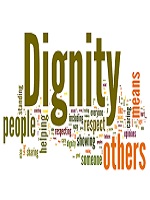|
Government urged to constitute governing councils for education colleges
Education Minister, Dr. Matthew Opoku Prempeh The Electoral Commission of the Democratic Republic of Congo has visited Ghana for enlightenment on measures to organise peaceful elections prior to their upcoming election on December 23, 2018. The visit was meant to enlighten the delegation on how Ghana organises free, fair and transparent elections. The Commission was in the country together with other Congolese delegations from Commission for Integrity and Electoral Mediation, Independent Churches of DR Congo, Faith Based Organisations, and Islamic Groups. The delegation in partnership with the Christian Council of Ghana formed visited Ex-Presidents, Jerry John Rawlings, John Agyekum Kufuor, and John Dramani Mahama, as well as bodies like; the Electoral Commission, the Institute of Economic Affairs, the Catholic Bishops Conference and the Chief Imam. Dr Kwabena Opuni-Frimpong, General Secretary of the Christian Council who briefed the media in Accra said, the media were involved in the interaction because they play major roles in successful organisation of elections. He noted that opinions, experiences and suggestions from the media would be used to strengthen, educate and encourage journalists in DR Congo to be more proactive in dealing with election coverage. Mr Corneille Nangaa Yobeluo, Chairman of the Electoral Commission of DR Congo, said that the DR Congo had a population of over 100 million with 603 registered political parties, 38 Presidential Candidates, 28,000 candidates vying as Members of Parliament. On the media strength of that country, he said there were 650 Television and Radio Stations, including 60 public and private television stations. He said the delegation’s visit was to learn Ghana’s best practices in organising credible and peaceful elections over the years. “We are going to have our general election for Presidential, Regional Ministers and Members of Parliament Aspirants come December 2018, and we have travelled to Ghana to learn because we believe Ghana stands out and serves as a good example when it comes to organising peaceful elections,” he said. Mr Nangaa Yobeluo said being proactive, transparency, having strong relationship with the media, and designing communication strategies are the key points the delegation learnt from the Ghanaian media. Mr Kenneth Ashigbey, the Chief Executive Officer of Telecoms Chamber, explaining the role of the Ghanaian Media in successful organisation of elections, said bodies including; the National Media Commission, Ghana Independent Broadcasters Association, and the Ghana Journalists Association protected the freedom of the press and ensured that journalists operated within the code of ethics of the profession. He noted that since 1992, there had been improvement in the media in terms of giving access to political parties, especially those in opposition was a step that promoted democracy. He said the media also supported the National Commission for Civic Education to educate the public on the importance of exercising their civic responsibilities and rights by voting during elections as well as reporting on provisional election results to the public. “Some media houses also have tallying devices that is used to collate electoral results and give provisional results to the public, and generally so far, such media houses have got it right. “The media threw so much light on the results in a way that, the Party that loses the election finds it difficult to dispute the results,” he added. Mr Ashigbey said though there were also partisan media houses that took election to the brick, the non-partisan and objective ones outweighed the partisan ones. He said: “the public who know the difference go to the non-partisan ones for their election results which are believed to be accurate”. He said that the country has over 480 radio stations, 48 television stations and 60 registered print media organisations. Source: ghananewsagency.org
April 17, 2018
|

Chairman's Message
On the night before he died, Jesus prayed that his followers might be one as he and the Father were Full Story

Our Currrent Programs
Socio-economic Justice issues are one of the priority areas of the Council. The Council works at promoting livelihoods Full Story

Who We Are
The Christian Council apart from its core business is a Research Based and Advocacy Institution. It has over the years Full Story

Governance
This programme builds the capacity of Member Churches and the Local Councils of Churches in good governance and social accountability so that the target beneficiaries could participate meaningfully in decision-making process that affects their lives, and engage constructively with policy makers and duty bearers to be accountable for their stewardship. Read All Latest News

Human Rights and Gender
The Council believes that the right of citizens, especially women, children and the disabled should be protected by all. In view of that, it works to ensure that there is respect for fundamental human right which includes the right to live, the right to education, the right to free speech and the right to movement with the view of ensuring peace. Council’s work in the area of HIV/AIDS, advocacy for Food Security and Worse forms of Child trafficking reflect the right based approach to its activities.

Interfaith and Ecumenism
The Council connects with other Christian bodies such as the Ghana Pentecostal Council (GPC), National Association of Charismatic and Christian Churches (NACCC) and the Council of Independent Churches (CIC) to foster peace and advance social issues and Christianity. It also works closely with other religious organizations such as the Office of the Chief Imam, Ahmadiyya Muslim Mission, Federation Read All Latest News
